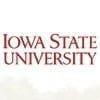Explore all the information on
Porcine circovirus diseases
Porcine circovirus diseases have traditionally been defined as those associated with porcine circovirus 2 (PCV-2) infection. However, this terminology should be revised because the advent of the novel porcine circovirus 3 (PCV-3) may expand the clinicopathologic outcome caused by porcine circovirus infections. Porcine circovirus 1 (PCV-1) is still considered a nonpathogenic agent for swine.
Historically, PCV-1 was described as a noncytopathogenic, picornavirus-like contaminant in the porcine kidney cell line PK-15 (ATCC-CCL33). This agent was later shown to be a small, nonenveloped virus containing a single-stranded, circular DNA genome; it was named porcine circovirus (PCV). PCV antibodies in swine were found to be widespread, and experimental infections with this virus in pigs did not result in clinical disease, suggesting that PCV was nonpathogenic.
PCV-2 has been further associated with a number of disease syndromes in pigs, so the term porcine circovirus disease (PCVD) was proposed as a collective name. The terms PCV2-systemic disease (PCV2-SD) and PCV2-reproductive disease (PCV2-RD) have been proposed to replace PMWS and PCV2-associated reproductive failure, respectively. Moreover, it is currently thought that the most important PCVD is the PCV2-subclinical infection (PCV2-SI), which is linked with growth retardation without overt clinical signs. Porcine dermatitis and nephropathy syndrome (PDNS) is also included as a PCVD, although there is still no proof that PCV2 is the antigen linked with this immunocomplex disease.
PCV-3 has been recently linked with reproductive disorders and multisystemic inflammation associated with vasculitis, as well as with PDNS. Like the other porcine circoviruses, PCV-3 is found worldwide.
Introduction Historically, the impact of foreign animal diseases (FADs) on global livestock production and economics has been devastating [1]. In 1997, Taiwan and the Netherlands experienced outbreaks of Foot and Mouth Disease (FMD) and Classical Swine Fever (CSF), respectively [2, 3]. In Taiwan, the estimated cost of the FMD outbreak was $379 million, due to the slaughter of over 4 million pigs, approximately 40% of the country’s pig population at the time [2, 4]. In...
Comments : 0
Recommendations: 1
Introduction The measure of the scientific quality and productivity of a particular researcher or research team has been traditionally a controversial issue. The topic is not trivial as it can be used by managers to evaluate professional promotions within a research institution, or by funding agencies and scientific panels to prioritize projects, grants and fellowships. The simplest way to tackle this challenge is...
Comments : 0
Recommendations: 0
Introduction
The aim of this study was to investigate the efficacy of a one-shot vaccination applied either at weaning or 3 days before weaning in a herd infected with M. hyopneumoniae (Mhyo) and other respiratory pathogens.
Materials and methods
At 14 days of...
Comments : 0
Recommendations: 0
Background Spray dried porcine plasma (SDPP) or spray dried bovine plasma (SDBP) has been used in nursery pig diets due to its documented beneficial effects on post-weaning growth, feed intake, morbidity indices and survival [1, 2]. In past studies, under field conditions, pigs suffering from porcine circovirus type 2-systemic disease (PCV2-SD, formerly known as...
Comments : 0
Recommendations: 0
Porcine epidemic diarrhea (PED) virus will become a notifiable disease in England, effective December 18. Pig keepers and veterinarians will be legally required to inform the Animal and Plant Health Agency (APHA) of any suspicion of the disease. The measure has been introduced by government at the request of pig industry bodies, including the National Pig Association (NPA).
If a test for PED virus proves...
Comments : 0
Recommendations: 0
Introduction.
Porcine circovirus (PCV) type 2 (PCV2) was firstly characterized in 1998 as an agent systematically present within the lesions of a novel disease called postweaning multisystemic wasting syndrome (PMWS). The condition was described sporadically during early-middle 1990s in Canada. The name of...
Comments : 0
Recommendations: 0
SIR, - Porcine multisystemic wasting syndrome (PMWS) was initially identified and reported in pig herds in Canada a decade ago (Harding 1996); since then, it has been described worldwide, including Argentina, Brazil and Mexico in Latin America (Trujano and others 2001, Zanella and others 2002, Sarradell and others 2002). Porcine circovirus type 2 (PCV-2) is considered the infectious cause of this disease (Ellis...
Comments : 0
Recommendations: 0
Postweaning multisystemic wasting syndrome ( PMWS ), also known as porcine circovirus associated disease (PCVAD) in North America, is an emerging disease of swine that was initially identified in herds in Western Canada during the early 1990s. 3 Major clinical signs associated with the disease, mainly wasting and respiratory distress, have been described in 6- to 16- week-old pigs. 19 The most...
Comments : 0
Recommendations: 0
Introduction Porcine circoviruses (PCVs) are members of the genus Circovirus included in the family Circoviridae, which comprises small icosahedral non-enveloped viruses with a circular single-stranded DNA (ssDNA) genome. There are two types of PCV, namely PCV1 and PCV2. PCV1 is a non-cytopathic contaminant of the PK15 cell line that was first identified in 1974 and described...
Comments : 0
Recommendations: 0
In 1982 a novel virus, subsequently named porcine circovirus (PCV), was identified by Tischer et al in 1892 (12). PVC is a DNA virus and member of the Circoviridae family. PCV infections may interfere with normal immune function (11). The first description of PMWS was in Saskatchewan in 1991 (6); this syndrome has now been described worldwide. Clinically the syndrome is characterized by wasting, paleness of the skin, dyspnea, diarrhea and icterus (jaundice). In 1997, the presence of...
Comments : 1
Recommendations: 0


Isoleucine Plays a Critical Role in Low-Protein Diets
Suggested link
The pathogenesis of porcine circovirus type 2 (PCV2) infections in pigs is still not completely understood. PCV2 has a tropism for lymphoid tissues where it is associated with depletion of follicles and histiocytic infiltration thereby accumulating in large numbers mainly in the cytoplasm of macrophages (1).PCV2 belongs to the Circoviridae family and is one of the smallest known single-stranded DNA viruses (2). Since the virus lacks its own enzymes,...
Comments : 2
Recommendations: 0
Veterinarians and pork producers can now help prevent Porcine Circovirus Type 2 (PCV2) viremia with the convenience of a single dose. New Fostera TM PCV from Pfizer Animal Health is the result of the company's commitment to best practices and continuous quality improvements.
"Nearly all pigs are exposed to PCV2 during their lifetime, so the goal is to create an environment with the least amount of virus present,"...
Comments : 0
Recommendations: 0
Introduction Through the late 1990's and on into the present century the global swine industry experienced very profound changes. The price crash in 1997/98 was especially traumatic and the outbreaks of CSF and FMD were also particularly damaging. A new emerging disease that became known as Post-weaning Multi-systemic Wasting Syndrome (PMWS) and its related Post-weaning Dermatitis Nephropathy Syndrome (PDNS) then appeared all over...
Comments : 0
Recommendations: 0
The porcine Circovirus type 2 (PCV2) is considered an important emerging pathogen in swine production. It has been associated to different syndromes and porcine diseases like the Porcine Dermatitis and Nephropathy Syndrome (PDNS) and the Post weaning Multisystemic Wasting Syndrome (PMWS). There have been found other infectious agents associated to PCV2, like the Aujeszky's disease Virus (ADV), Porcine Parvovirus (PPV), Porcine Reproductive Respiratory Syndrome Virus...
Comments : 0
Recommendations: 0
Porcine circovirus type 2 (PCV2) is a small, circular, single-stranded DNA virus that affects pigs worldwide and is economically important to the swine industry. Within the past 3 years, North America has seen a marked increase and wide dissemination of PCV2-associated disease (PCVAD) that has resulted in devastating production losses. The rapid spread of PCVAD raised important questions about transmission of PCV2 amongst swine populations and regions. To date, transmission of PCV2 is not well...
Comments : 0
Recommendations: 0
Several trials in Kansas have demonstrated that circovirus vaccination improves the performance of growing pigs even on high health farms. On a 300 sow, PRRS negative farm with a history of PCVAD, 235 animals were vaccinated with a porcine circovirus type 2 (PCV2) vaccine at three and six weeks of age. They were housed in the same pens as 250 control (non-vaccinated) animals. Mortality rate and growth rate were significantly better in vaccinated pigs. In the wean to finish stage, the...
Comments : 4
Recommendations: 0
A pig virus that exists worldwide has become more dangerous as the virus has mutated and then combined with other pathogens, according to Purdue University researchers. It's not known why a virus that has been known to infect swine for almost 40 years in North America suddenly started causing disease in young pigs in 1991 and then began mutating into more deadly forms. Evidence from research being conducted at the Indiana Animal Disease Diagnostic Laboratory on the Purdue campus has...
Comments : 0
Recommendations: 0
Intervet Inc. announced yesterday the full U.S. Department of Agriculture license for Circumvent PCV (Porcine Circovirus Vaccine, Type 2, Killed Baculovirus Vector), which provides a superior solution for the control and management of Porcine Circovirus Associated Disease (PCVAD). The vaccine is labeled as "For use in healthy swine, 3 weeks of age or older, as an aid in the prevention of viremia and as an aid in the prevention of virus shedding caused by Porcine Circovirus." ...
Comments : 0
Recommendations: 0
Within a few years, post-weaning multi-systemic wasting syndrome (PMWS) has become a worldwide animal health concern to the pig industry and a real challenge to the veterinary science community. A small single-stranded DNA virus, Porcine Circovirus type 2 (PCV2), was rapidly found in the damaged tissues of affected pigs. However as soon as the laboratory tools adequately tailored to PCV2 detection on a large scale were available, it became evident that the virus was widespread and...
Comments : 0
Recommendations: 0







.mp4&w=3840&q=75)

.jpg&w=3840&q=75)









